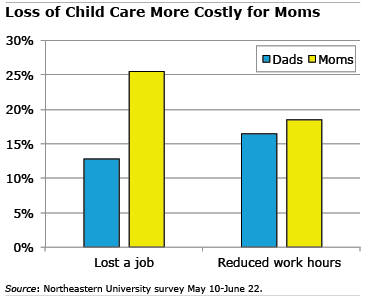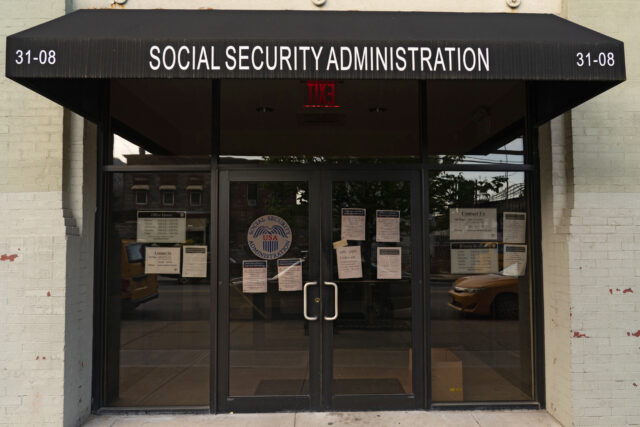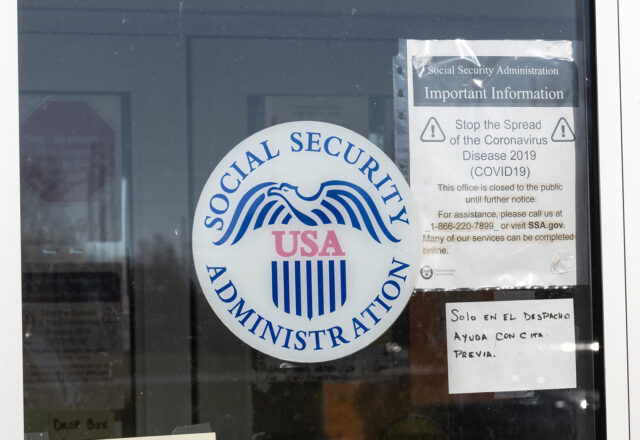
Expect More Moms to Sacrifice Careers

Working mothers scrambled when the schools shut their doors last spring, but they found ways to cope. The 2020-21 school year may push many of them over the edge.
 Last spring, one in four women nationwide who’d either quit their jobs or were laid off blamed the difficulties of working after the schools closed or they lost child care to COVID-19, a Northeastern survey found.
Last spring, one in four women nationwide who’d either quit their jobs or were laid off blamed the difficulties of working after the schools closed or they lost child care to COVID-19, a Northeastern survey found.
Alicia Sasser Modestino is in the midst of repeating the survey but believes that the situation has only gotten harder for working mothers this fall.
“When you look down the barrel of a full school year of hybrid or remote learning,” the stopgap measures mothers deployed last spring “are not sustainable,” said Modestino, a mother of four and research director for Northeastern’s Dukakis Center for Urban and Regional Policy.
“If it’s not going to be Congress giving money for schools to reopen safely or the state opening child care centers, a parent is going to have to give up their job, and we know from history that it’s more likely to be women,” she said.
The impact of school closings on Millennials and Generation X can’t be overstated. In 75 of the 100 largest U.S. school districts, returning to school has meant students connecting to Zoom from their bedrooms or kitchen tables.
In the COVID-19 pandemic, a disproportionate share of women have been laid off, because they dominate face-to-face industries – nursing, retail, customer service – that are more vulnerable to closing. But something new is happening to mothers in this downturn.
Forced to choose their kids over their careers, they are dropping out of the labor force entirely. In September, as school resumed, far more women left the labor force, meaning they quit working or were laid off and aren’t looking for another job, according to the National Women’s Law Center.
This has affected Millennial and Generation X women across the educational and occupational spectrum, from corporate executives and surgeons to service workers. Less appreciated is the fact that some baby boomers may be retiring for the same reason.
“It could also be grandparents providing care. When you say grandparent, you really mean grandma,” Modestino said.
Mothers can be expected to sustain long-term effects even if the pandemic is suppressed within the next year and the economy improves. They will be returning to the job market after a year or more of lost professional connections and a deterioration in their skills.
“It’s still going to be a tough labor market,” Modestino said, “and if you’ve had time off, you’ll be the last one in line to be hired.”
Read more blog posts in our ongoing coverage of COVID-19.
Squared Away writer Kim Blanton invites you to follow us on Twitter @SquaredAwayBC. To stay current on our blog, please join our free email list. You’ll receive just one email each week – with links to the two new posts for that week – when you sign up here. This blog is supported by the Center for Retirement Research at Boston College.
Comments are closed.







This is a great summary on a topic that should be talked about more often. We should encourage governments to step in and provide support for working parents who have to take time off to take care of children during COVID. Similarly there is a larger discussion to be had about both parents taking on the burden of raising children during these difficult times. The unfortunate thing is there are not a lot of options out there for childcare for families at the moment .